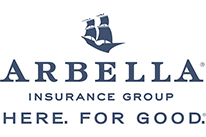Owning and renting property can be a great way to generate passive income. However, it can be a big investment and comes with substantial risk. First and foremost, someone else is living on your property and you cannot control everything they do. Additionally, your property could be damaged during natural disasters. To cover any unexpected expenses related to property damage or liability claims, you should purchase landlord insurance.


Landlord insurance, also known as dwelling policies, gives landlords financial protection when their rental property is damaged, becomes unlivable, or a person is injured on the property. Standard homeowners’ insurance has only limited – if any – coverage for rental properties as opposed to policies tailored specifically for landlords.
When you are renting out a condominium and only liable for the interior structure of the property, you do not need full landlord insurance. Instead, you will be better off with landlord condo insurance.
If you are renting out the property only for the short term, consider getting a commercial insurance policy. This can be adjusted to cover your precise needs
While each landlord's insurance policy can differ given their unique circumstances, there are three main types of policies: dwelling-fire form 1 (DP-1), dwelling-fire form 2 (DP-2), and dwelling-fire form 3 (DP-3). The higher the number, the better the coverage, which means that DP-3 offers the most comprehensive coverage. DP-1 policies offer the least coverage and are usually avoided.
In general, insurance policies cover the following:
There are some additional coverages you might want to consider:
Landlord insurance excludes the following:

If you are renting out a fully furnished property, then you can also add landlord content insurance to the standard policy. This will cover practically everything in a property, including furniture, electronics, and fixtures.
There are two types of landlord contents insurance: standard and accidental.
Under standard coverage, you will be covered for any damage due to wear and tear. Under accidental coverage, in addition, to wear and tear, you will also be covered for theft and damages caused by a tenant.
When purchasing landlord insurance, you want to select a policy that adequately covers your needs. However, that does not mean you need to choose the most expensive policy. There are several ways to reduce the cost of insurance:
By increasing your deductibles, you will decrease your premiums. However, as with any other insurance, the out-of-pocket costs will be higher. Make sure you have enough savings to cover that.
If you pay for your entire insurance policy annually rather than monthly, you can save a significant sum.
If you have valuable assets inside the property, installing burglar alarms will reduce your costs. The same applies to fire alarms and sprinkler systems. The more secure or better protected your property is, the lower are the risks and insurance premiums.
In general, keeping the property in good working order and doing regular maintenance on the plumbing, heating and electrical systems will lower your premiums.
Since insurance companies take into account the number of claims you have made in the past to evaluate their risks accordingly, avoid filing claims when you have other options or the issues are not serious.
If you already have a car or home insurance, consider bundling all your insurance policies together from the same provider to get discounts.
Ready to find the perfect policy for your needs? Email us and our experts will get back to you soon.




